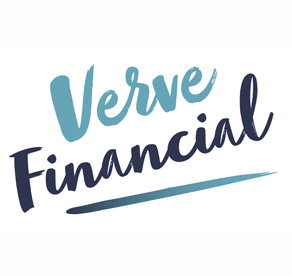Enterprise Investment Scheme (EIS)
- This service is for information purposes only, we introduce any enquiries to a third party.
Home / Financial Planning / Wealth Management / Enterprise Investme...
Body
The Enterprise Investment Scheme offers two-way benefits to applicable small businesses and investors. Those who do invest in these companies can reduce their tax liability by up to £300,000.
What is the Enterprise Investment Scheme?
The Enterprise Investment Scheme (EIS) is a UK Government investment programme designed to help small companies that are considered risky to attract investors. Investors that buy shares in these risky - but often innovative - companies will receive tax relief, making an investment more lucrative.
Investors can reduce their tax liability by up to £300,000 for investing under the EIS scheme. Moreover, if the investor decides to sell the shares in the future, any profits made on these shares will not be subject to Capital Gains Tax (CGT). The shares must be owned for at least three years and can be purchased through the EIS fund or via the business directly.
Both the small business and investors must abide by regulations to ensure the overarching goal of small business investment is maintained, and so that the system is not abused for tax relief.
Helping You Find the Right Financial Advice
Take control of your financial planning with the right insights and expert connections. We help you explore your options and refer you to professionals who can provide tailored advice based on your needs.

What companies can use the EIS?
Small businesses that want to use the EIS must:
- Have a maximum of £15 million in gross assets
- Have a maximum of 250 employees
- Have at least seven years since the business’s first commercial sale
- Not already be trading shares on a recognised stock exchange
These are the general conditions for a company to use EIS. There may be higher limits for other businesses carrying out research and innovative activities.
Our personalised evidence-based recommendations that build on your current plans are achieved using robust research. We investigate different financial scenarios so that you can be confident in achieving your objectives

What can the money be used for?
The money raised by the business through selling shares must be used within two years in most instances, and it must be used on a “qualifying trade”. The money can be spent on preparing, researching or developing something that would lead to the qualifying trade activity.
The rules on what does and doesn’t qualify can be complex.
How to apply for EIS
A business can apply to use the EIS by providing an extensive list of documents to prove your business qualifies for the scheme. These documents will need to be sent to HMRC’s Venture Capital Relief Team. If the application is successful, HMRC will respond with a compliance certificate that can be shared with investors so they can claim tax relief.
The process is worthwhile for many businesses and their investors, but it can also be complex.
Get in touch
When we tell you about a fee, you will always receive a clear explanation of: The total fee, the advice service it relates to, how it's been calculated, when you need to pay it and your payment options.
Warning Text

ENTERPRISE INVESTMENT SCHEMES (EIS) INVEST IN ASSETS THAT ARE HIGH RISK AND CAN BE DIFFICULT TO SELL.
THE VALUE OF THE INVESTMENT AND THE INCOME FROM IT CAN FALL AS WELL AS RISE AND INVESTORS MAY NOT GET BACK WHAT THEY ORIGINALLY INVESTED, EVEN TAKING INTO ACCOUNT THE TAX BENEFITS.
TAX TREATMENT VARIES ACCORDING TO INDIVIDUAL CIRCUMSTANCES AND IS SUBJECT TO CHANGE.
THIS SERVICE MAY NOT BE SUITABLE FOR NEW CLIENTS.
Unlock the answers you seek- the best solutions often start with the right questions!
FAQs
-
What happens if my consultant is away on holiday?
There will always be someone to help in our absence.
-
What do I need to bring to an initial meeting?
Three months’ payslips, three months’ bank statements, proof of ID and address, proof of deposit.
-
How long should I allow for an initial meeting?
60 minutes



